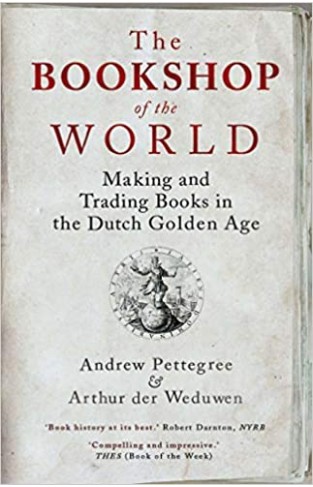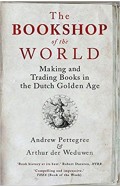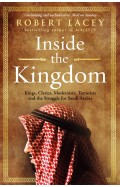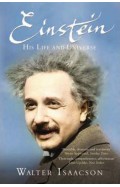The Bookshop of the World: Making and Trading Books in the Dutch Golden Age Paperback
By: Andrew Pettegree
-
Rs 2,217.00
- Rs 3,695.00
- 40%
You save Rs 1,478.00.
Due to constant currency fluctuation, prices are subject to change with or without notice.
The untold story of how the Dutch conquered the European book market and became the world's greatest bibliophiles The Dutch Golden Age has long been seen as the age of Rembrandt and Vermeer, whose paintings captured the public imagination and came to represent the marvel that was the Dutch Republic. Yet there is another, largely overlooked marvel in the Dutch world of the seventeenth century: books. In this fascinating account, Andrew Pettegree and Arthur der Weduwen show how the Dutch produced many more books than pictures and bought and owned more books per capita than any other part of Europe. Key innovations in marketing, book auctions, and newspaper advertising brought stability to a market where elsewhere publishers faced bankruptcy, and created a population uniquely well-informed and politically engaged. This book tells for the first time the remarkable story of the Dutch conquest of the European book world and shows the true extent to which these pious, prosperous, quarrelsome, and generous people were shaped by what they read.
The untold story of how the Dutch conquered the European book market and became the world's greatest bibliophiles The Dutch Golden Age has long been seen as the age of Rembrandt and Vermeer, whose paintings captured the public imagination and came to represent the marvel that was the Dutch Republic. Yet there is another, largely overlooked marvel in the Dutch world of the seventeenth century: books. In this fascinating account, Andrew Pettegree and Arthur der Weduwen show how the Dutch produced many more books than pictures and bought and owned more books per capita than any other part of Europe. Key innovations in marketing, book auctions, and newspaper advertising brought stability to a market where elsewhere publishers faced bankruptcy, and created a population uniquely well-informed and politically engaged. This book tells for the first time the remarkable story of the Dutch conquest of the European book world and shows the true extent to which these pious, prosperous, quarrelsome, and generous people were shaped by what they read.
The Bookshop of the World: Making and Trading Books in the Dutch Golden Age Paperback
By: Andrew Pettegree
Rs 2,217.00 Rs 3,695.00 Ex Tax :Rs 2,217.00
Zubin Mehta: A Musical Journey (An Authorized Biography)
By: VOID - Bakhtiar K. Dadabhoy
Rs 630.00 Rs 1,050.00 Ex Tax :Rs 630.00
Einstein His Life and Universe - (PB)
By: Walter Isaacson
Rs 2,605.50 Rs 2,895.00 Ex Tax :Rs 2,605.50
The Origins of Political Order From Prehuman Times to the French RevolutioN
By: Francis Fukuyama
Rs 3,505.50 Rs 3,895.00 Ex Tax :Rs 3,505.50
Manning Up: How the Rise of Women Has Turned Men into Boys
By: Kay Hymowitz
Rs 796.00 Rs 995.00 Ex Tax :Rs 796.00
The Obama Syndrome: Surrender At Home War Abroad
By: Tariq Ali
Rs 1,165.50 Rs 1,295.00 Ex Tax :Rs 1,165.50
The Quest For Meaning: Developing A Philosophy Of Pluralism
By: Tariq Ramadan
Rs 1,255.50 Rs 1,395.00 Ex Tax :Rs 1,255.50
The Pakistan US Conundrum Jihadists The Military And The People The Struggle For Control
By: Yunas Samad
Rs 1,255.50 Rs 1,395.00 Ex Tax :Rs 1,255.50
An Enemy We Created: The Myth Of The Taliban Al Qaeda Merger In Afghanistan 19702010
By: Alex Strick van Linschoten
Rs 4,200.00 Rs 5,250.00 Ex Tax :Rs 4,200.00
WikiLeaks: Inside Julian Assanges War on Secrecy
By: David Leigh & Luke Harding
Rs 680.00 Rs 850.00 Ex Tax :Rs 680.00
Einstein His Life and Universe - (PB)
By: Walter Isaacson
Rs 2,605.50 Rs 2,895.00 Ex Tax :Rs 2,605.50
No recently viewed books available at the moment.
Zubin Mehta: A Musical Journey (An Authorized Biography)
By: VOID - Bakhtiar K. Dadabhoy
Rs 630.00 Rs 1,050.00 Ex Tax :Rs 630.00
The Bookshop of the World: Making and Trading Books in the Dutch Golden Age Paperback
By: Andrew Pettegree
Rs 2,217.00 Rs 3,695.00 Ex Tax :Rs 2,217.00
Einstein His Life and Universe - (PB)
By: Walter Isaacson
Rs 2,605.50 Rs 2,895.00 Ex Tax :Rs 2,605.50














-120x187.jpg?q6)







-120x187.jpg?q6)



-120x187.jpg?q6)



